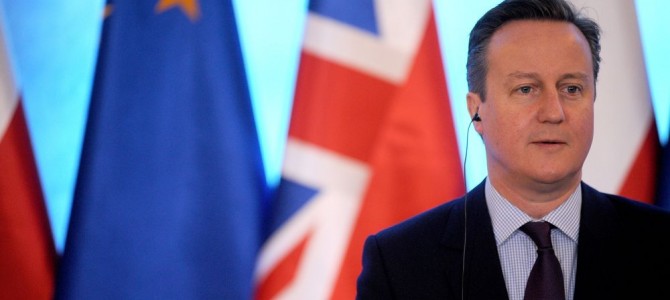
Here’s a thought experiment for those wondering which side to take on whether Britain should leave the European Union. Imagine that, say, employment law in California is set not by the state legislature in Sacramento, nor even by the federal government, but by a committee of appointed—not elected—officials from countries including Bolivia, Venezuela, and Suriname; a committee in which a “qualified” majority vote makes all the decisions, with no veto for the United States.
The notion is unthinkable. Yet that is what anti-Brexit Americans wish to impose on Britain. Perhaps it’s some kind of revenge?
As British voters move ever closer to making a historic decision this Thursday to leave the EU, many Americans are amazed. For understandable reasons, they tend to think of the EU as a foreign policy issue, or a trade issue—a kind of European version of the North American Free Trade Agreement. What’s the problem?
For many British citizens, the answer lies in the EU’s impact on the United Kingdom’s domestic affairs. To a degree that Americans would find astonishing and completely unacceptable, the EU’s centralized bureaucracy controls the rules that affect the daily life of every individual and every business in each member state.
Rule By Bureaucracy Is Miserable
I saw this firsthand as a senior advisor to Prime Minister David Cameron. After just a few weeks in office, I was struck by how many things the European government was doing that the prime minister and his team didn’t just not know about, but would have actively opposed. Every few days, the civil service circulated a a pile of paperwork about a foot high, proposing regulatory or administrative government action.
In time-honored fashion, the process was stacked in the bureaucrats’ favor: proposals would be implemented unless elected officials objected within two days. I wanted to know where these “requests for policy clearance,” as the EU directives were known, originated. More importantly, I wanted to know the extent of their effects on the lives of British people. So I requested a detailed audit. I discovered that some 30 percent of the British government’s actions came as a result of the actions British people elected us to undertake. The rest were generated and mandated by the civil service machine, the majority coming from the EU.
These directives determined everything from employment law to family policy, all through distant, centralized processes that UK citizens barely understood, let alone controlled. To this day, British officials spend much of their time in the EU’s administrative capital, Brussels, trying—mostly in vain—to block policies they don’t want and which no one in Britain voted for, all of it wasting inordinate amounts of time, energy, and money.
The European Union Is a Bureaucratic Nightmare
True democrats should be outraged by the EU. The EU is anti-market, stifling innovation and competition with its regulatory zeal and endemic corporatism. It is anti-enterprise, acting in the interests of big businesses that have corruptly captured the levers of power in Brussels through their shameless lobbying and insider deal-making.
The European Union is anti-trade, locking developing countries out of world markets with its Common Agricultural Policy that subsidizes European farmers while keeping their African counterparts trapped in poverty. It is also, of course, antidemocratic. For example, the EU has three presidents, none of whom are elected. The enterprise, founded on a noble vision, is completely out of step with a modern, open, connected world, instead perpetuating an old-fashioned insularity that amongst other things prevents Britain’s immigration system from welcoming the best and brightest from around the world.
There is of course a superficial attraction to the notion that despite the egregious curtailments of democratic self-government, Britain at least benefits economically by being in the EU. But these benefits turn out to be largely illusory. The UK has a trade deficit with the EU, and economic success depends far more on whether a country is designing and producing things others want to buy than on politicians’ arrangements.
For me, though, the clinching argument is more fundamental. As campaigners on both sides point out, the decision Britain will make on June 23 is a much longer-term one than in any general election. While no one knows what the next 40 or 50 years will bring, we can predict two things with relative certainty. First, we literally cannot imagine the changes that are coming, because technology is evolving exponentially. Second, whatever happens, the EU will evolve in a more bureaucratic, centralizing direction—because that’s what it has always done.
In those circumstances, I believe it would be a huge risk for any country to diminish its ability to control its own affairs and move swiftly to adapt to a fast-changing world. So I find myself on the opposite side of the debate to my friend and former boss, the prime minister. It’s not an especially comfortable place for me to be, but one that I am convinced is in the best interests of Britain, America, and the wider world.









